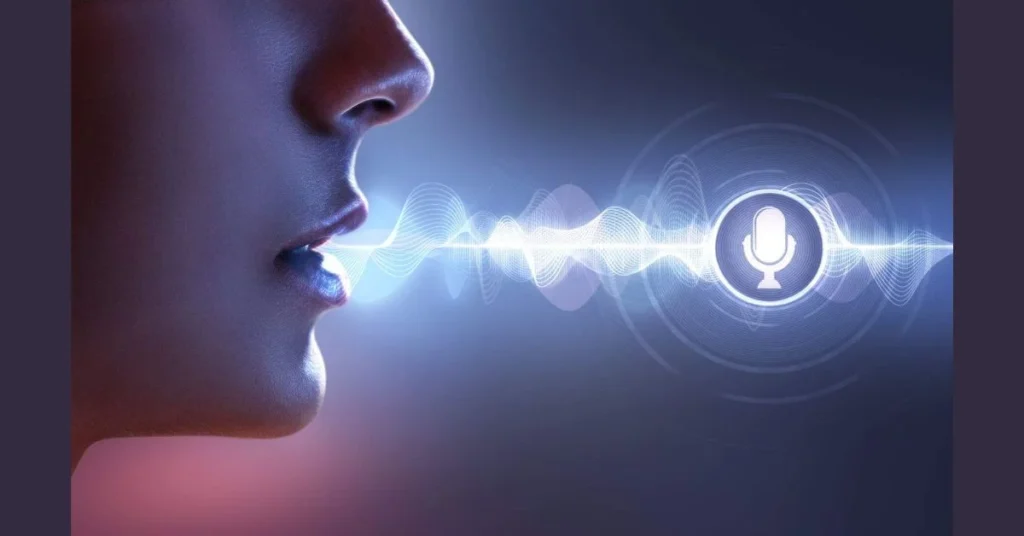Artificial intelligence is reshaping everything from healthcare to entertainment. One fascinating innovation is AI-generated voices modeled after celebrities. Among these, the “Famke Janssen AI Voice” stands out, captivating tech enthusiasts and fans alike. Famke Janssen, known for her iconic roles in X-Men and GoldenEye, has a unique, instantly recognizable voice that developers have sought to replicate. But what exactly is the Famke Janssen AI Voice, and why does it matter? Let’s dive in and explore.
What is the Famke Janssen AI Voice?

The Famke Janssen AI Voice refers to a sophisticated artificial intelligence-generated voice that mimics Famke Janssen’s distinct vocal tone and delivery. Using advanced AI techniques, developers aim to recreate not just her sound but also her style—the deep, smooth, and engaging quality that has made her voice iconic.
AI voice cloning works by leveraging deep learning algorithms and audio data, producing a model capable of sounding remarkably close to the original. In Famke’s case, her memorable voice makes this endeavor particularly intriguing, offering exciting potential for applications in areas like virtual assistants, audiobooks, and even film dubbing.
How AI Voice Technology Works
To appreciate the innovation behind Famke Janssen’s AI Voice, it helps to understand how AI voice technology operates. Here’s a simplified breakdown:
- Data Collection: Developers compile audio samples of Famke Janssen from interviews, movie dialogues, and other publicly available sources.
- AI Model Training: Using neural networks, the AI system is trained on these recordings to analyze speech patterns, intonation, and subtle emotional cues.
- Voice Synthesis: The trained model generates speech from text inputs, fine-tuned to replicate the original voice accurately.
The result is an artificial voice that’s eerily close to the real thing, capable of delivering text in a way that feels natural and authentic.
Applications of Famke Janssen AI Voice
AI-generated voices have a wide range of uses, and Famke Janssen’s AI voice is no exception. Here are some of the most promising applications:
1. Entertainment Industry
AI voices are revolutionizing movies, TV, and gaming. Famke Janssen’s AI voice could be employed to:
- Dub roles in multiple languages without needing her physical presence.
- Voice animated characters, adding authenticity and star power.
- Enhance virtual environments with a familiar, human-like voice.
2. Audiobooks and Narration
Famke’s distinct voice lends itself perfectly to audiobooks. An AI version could:
- Deliver consistent narration over lengthy texts.
- Cater to audiences who love her unique vocal style.
3. Virtual Assistants
Imagine your AI assistant responding with Famke Janssen’s voice. This personal touch could make interactions more engaging and relatable.
4. Educational Content
E-learning platforms could use the AI voice to:
- Explain complex topics with clarity and professionalism.
- Provide a soothing and engaging listening experience for learners.
Ethical Concerns Surrounding AI Voice Cloning

While the possibilities are exciting, AI voice cloning also raises important ethical questions. Here are the key concerns:
1. Consent and Copyright
Creating a voice clone of Famke Janssen without her explicit permission could infringe on her intellectual property rights. A celebrity’s voice is a valuable part of their brand, and unauthorized use might lead to legal complications.
2. Potential for Misuse
AI-generated voices can be weaponized to create fake audio clips, leading to misinformation or reputational harm. A Famke Janssen AI voice might be misused in fake interviews, prank calls, or scams.
3. Authenticity in Media
With AI voices becoming indistinguishable from real ones, there’s a risk of blurring lines between genuine and machine-generated content, potentially eroding trust in media.
Advancements in AI Voice Technology
The Famke Janssen AI Voice is just one example of how rapidly AI voice technology is evolving. Here are some areas of advancement:
1. Emotion Recognition
AI models are increasingly adept at capturing emotional nuances, making voices sound more human and dynamic.
2. Multilingual Capabilities
With proper training, the Famke Janssen AI voice could speak multiple languages, broadening its global appeal.
3. Real-Time Cloning
Future AI systems might enable real-time voice cloning, paving the way for instant replication during live events or broadcasts.
How Famke Janssen AI Voice Can Shape the Future
AI voices like Famke Janssen’s have the potential to reshape how we interact with technology. Imagine a future where personalized AI assistants:
- Provide empathetic responses tailored to user emotions.
- Use familiar voices to create deeper connections.
- Enhance accessibility for visually impaired users by narrating content in recognizable voices.
Moreover, this technology can streamline creative processes in media and education, saving time and resources while maintaining high-quality output.
Challenges in Perfecting AI Voices
Despite its promise, AI voice cloning faces several hurdles:
1. Limited Data Availability
High-quality, extensive datasets are essential for accurate voice cloning. For celebrities like Famke Janssen, publicly available data may not always suffice.
2. Privacy vs. Progress
Balancing innovation with respect for privacy and intellectual property remains a significant challenge.
3. Public Trust
Many people remain wary of AI-generated content, fearing its potential for misuse or lack of authenticity.
Conclusion: The Promise and Perils of Famke Janssen AI Voice
The Famke Janssen AI Voice is a remarkable example of how far AI technology has come. From enhancing entertainment to improving accessibility, its potential applications are vast. However, with great power comes great responsibility. Developers must ensure that this technology is used ethically, respecting consent and mitigating risks of misuse.
As AI voices become more lifelike, they promise to enrich our interactions with technology—but only if we navigate the challenges thoughtfully and responsibly.
FAQs:
1. What is the Famke Janssen AI Voice?
The Famke Janssen AI Voice is an artificial intelligence-generated voice designed to replicate the unique tone, style, and delivery of Famke Janssen’s real voice. Using advanced AI techniques, developers create a model capable of mimicking her iconic vocal characteristics.
2. How is the Famke Janssen AI Voice created?
AI voice cloning relies on deep learning algorithms and audio data. Developers gather audio samples of Famke Janssen, analyze her speech patterns, intonation, and emotional cues, and train a neural network to produce a realistic, AI-generated voice.
3. What are the applications of the Famke Janssen AI Voice?
This AI voice can be used in various fields, including:
- Entertainment: Voiceovers for movies, TV shows, or video games.
- Audiobooks: Narration for books or other long-form content.
- Virtual Assistants: Providing a familiar and engaging voice for AI tools.
- E-Learning: Narrating educational content for better user engagement.
4. What ethical concerns surround AI voice cloning?
Key ethical concerns include:
- Consent and Copyright: Using Famke Janssen’s voice without permission could infringe on her intellectual property rights.
- Misuse: Potential for creating fake audio clips for scams or misinformation.
- Media Authenticity: Risk of blurring lines between real and AI-generated content.
5. What challenges does AI voice cloning face?
Challenges include:
- Data Availability: Limited high-quality data for creating accurate voice models.
- Privacy Issues: Balancing innovation with respect for personal rights.
- Public Trust: Building confidence in AI-generated content amid fears of misuse.
Explore how AI SEO tools can help scale agile solutions effectively by visiting Nodersoft.

